Samuel Beckett - Watt
Here you can read online Samuel Beckett - Watt full text of the book (entire story) in english for free. Download pdf and epub, get meaning, cover and reviews about this ebook. year: 2009, publisher: Faber and Faber, genre: Detective and thriller. Description of the work, (preface) as well as reviews are available. Best literature library LitArk.com created for fans of good reading and offers a wide selection of genres:
Romance novel
Science fiction
Adventure
Detective
Science
History
Home and family
Prose
Art
Politics
Computer
Non-fiction
Religion
Business
Children
Humor
Choose a favorite category and find really read worthwhile books. Enjoy immersion in the world of imagination, feel the emotions of the characters or learn something new for yourself, make an fascinating discovery.
- Book:Watt
- Author:
- Publisher:Faber and Faber
- Genre:
- Year:2009
- Rating:4 / 5
- Favourites:Add to favourites
- Your mark:
- 80
- 1
- 2
- 3
- 4
- 5
Watt: summary, description and annotation
We offer to read an annotation, description, summary or preface (depends on what the author of the book "Watt" wrote himself). If you haven't found the necessary information about the book — write in the comments, we will try to find it.
Watt — read online for free the complete book (whole text) full work
Below is the text of the book, divided by pages. System saving the place of the last page read, allows you to conveniently read the book "Watt" online for free, without having to search again every time where you left off. Put a bookmark, and you can go to the page where you finished reading at any time.
Font size:
Interval:
Bookmark:
[xxxiii]
Watt is a curiosity. As Beckett insisted to George Reavey in 1947, when he was vainly seeking a publisher: It is an unsatisfactory book, written in dribs and drabs, but it has its part in the series, as will perhaps appear in time. Few would now dispute the latter claim, at least: Watt complements the earlier Murphy and the later Three Novels with its comic attack upon Cartesian rationality, and its protagonist takes his awkward stance among Becketts shabby moribunds, whose inability to adapt to the contingencies of the world finds its ultimate accommodation in the asylum, but whose plight invokes what Beckett (following Schopenhauer) deemed the only possible ethical value, that of pity.
Watt is unsatisfactory, however, and in obvious ways. Thus its peculiar pedantry and its monstrous paradigms of mounting complexity, which must daunt even the most enterprising reader. And designedly so. The text assumes a fundamental condition of human fallibility and error, and it therefore includes intentional mistakes, with which to probe the soft centres of the rationalist enterprise. Further, it embodies Becketts aesthetic of failure: Watts endeavour to bear witness, to comprehend the essence of his master, Mr Knott, by means of his accidentals (a parody of both Scholasticism and the Cartesian mthode), leads not to a knowing but to a philosophical impasse, a consequent breakdown and finally to madness. But Watt is also, incongruously, the most lovable of all Becketts texts, once the reader learns to respond (as Watt to Mrs Gorman) to its curious charms.
The more distressing, then, that for the first six decades of its existence (as manuscript and book) the text of Watt has been a mess. The problem of error is crucial, for as Watt interrogates the foundations of rational inquiry, the distinctions between intended errors, authorial errors, mistakes introduced by publishers, changes of intention and other obnubilations loom all the larger. If no distinction can be drawn between deliberate and inadvertent error then all interpretation is fraught. To an extent, this will always be so with Watt, because its textual history is so complex; but a first scholarly step must be the determination of the best text possible (if not the best possible text).
Watt began, and ended, in Paris: the first entries in what would prove to be six notebooks dated 11 February 1941, and the last signed off with Dec 28th 1944 / End. Much of the writing was done while Beckett was on the run from the Gestapo between 1943 and 1945, in the small town of Roussillon, in the Vaucluse, where he and his partner, Suzanne, had taken refuge. The novel was written in English, he told Reavey, first on the run, then of an evening after the clod-hopping . He later described it to Lawrence Harvey as only a game, a means of staying sane; and he dismissed it to Ruby Cohn as an exercise, written to counter the long hours of ennui as he waited for nothing to happen.
Yet Watt is a very Irish novel, its world of trams, trains and verdurous ditches recognisably that of Becketts childhood. Mr Knotts house is based on Cooldrinagh, the Beckett family home; Watts journey can be traced from Harcourt Street Station and past the Leopardstown racecourse to the small south Dublin station of Foxrock; and many of the characters have their originals in that world. Watt was written, Beckett told Gottfried Bttner in 1978, as it came, without pre-established plan. This is at best a partial truth. Beckett clearly had no sense at the outset of where the novel might end, and to that extent its only unity, like that of Dream of Fair to Middling Women, is an involuntary one; on the other hand the process of writing and rewriting took several years, as the present imago slowly emerged from the chrysalis of literally hundreds of pages of early drafts, the fragmented structure of the whole not altogether reflecting the love and care lavished on so many of its parts.
In addition to the six notebooks, there are two early typescripts and miscellaneous loose leaves. The relationship between these is not neat and tidy, with Beckett often typing up materials as he was working on other sequences, and frequently returning to past drafts to write over them and to add further details. He tended initially to write on the rectos only, leaving the opposite versos for afterthoughts, doodles, outlines of complex paradigms and later rewritings of selected passages.
A broad distinction can be discerned between the early and later drafts: fragments of the former preserved in occasional flickers and details of the published text, but more obviously in the materials of the thirty-seven Addenda (so called), which, like fossils among the rocks, testify to what the novel once was and what it might have been. The early stages of what would become Watt are not easily outlined, for the evolution of the text is intricate and by no means neatly punctuated. As The Unnamable would do, the ur-Watt began by invoking the scholastic memoria technica: who, what, where, by what means, why, in what way, when, by which any subject traditionally might be broken into its parts for analysis, or patterns extended infinitely. This was followed by the image of an old man, perhaps Socrates, whose place in time and space would be defined by the application of scholastic categories, which in turn would generate not only Watt but the Beckett protagonist of the next forty years: X is a man, 70 years old, ignorant, alone, at evening, in his room, in bed, having pains, listening, remembering. From this arose a figure, finally named Quin, whose extension into space and time required a family, a house, a garden and servants, one of whom was named Arsene. Then he needed (as witness?) a narrator, gradually (over many drafts and rewritings) defined as Johnny Watt, the point being that the early Quin was the prototype or common ancestor of both Watt and Knott. The presence of Quin rather than Knott is (very crudely) an index of early rather than later composition; but though countless small details from this stage would leave their mark upon the published text, the broad outline of the novel at this point is barely recognisable.
The later drafts (parts of Notebook 4, Notebook 5 and Notebook 6) more obviously resemble the final text: rewriting many sections of the novel (the opening of Part I, the asylum scenes of Part III), substantially revising other scenes (Parts II and III) and composing Part IV (Notebook 6) in virtually its final form. The plot of the novel, Watts frustrated quest (his coming and his going) to understand his master (who abides), was at last defined. After the war, in Dublin and Paris, Beckett shaped the final sequences of the text and typed out a fair copy, alas now lost. It is possible that this typescript, presumably used as the printers copy, or its carbon, might yet turn up, but its absence has required those seeking to determine the evolution of the text to work on broad philological grounds, on the one hand from the late drafts and notebooks, and on the other from the galley proofs (now located at Washington University, St Louis, with a copy at the Beckett International Foundation in Reading), to ascertain its likely form. Enough material exists to render this a feasible project, but nevertheless one critical stage of the text no longer exists.
This is of some importance as, one could argue, the best text for a definitive edition of a novel like Watt might be a virtual construct, an ideal object, somewhere between the authors final intentions as realised on his fair copy and the first published edition. In this instance, the fair copy does not exist and the first published edition emerged in 1953 from the Olympia Press, purveyors of pornography whose attention to detail was less than scrupulous (though it must be acknowledged that Becketts own proof-reading was less than adequate, and also a source of many persistent errors). Like Vladimir Nabokov, whose
Font size:
Interval:
Bookmark:
Similar books «Watt»
Look at similar books to Watt. We have selected literature similar in name and meaning in the hope of providing readers with more options to find new, interesting, not yet read works.
Discussion, reviews of the book Watt and just readers' own opinions. Leave your comments, write what you think about the work, its meaning or the main characters. Specify what exactly you liked and what you didn't like, and why you think so.

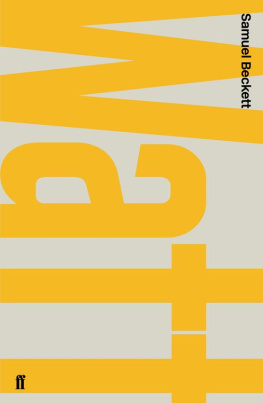
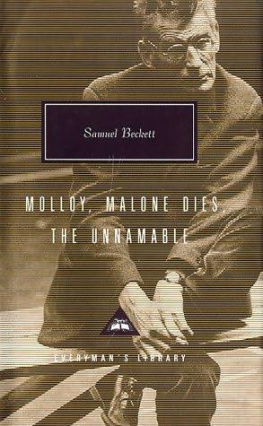
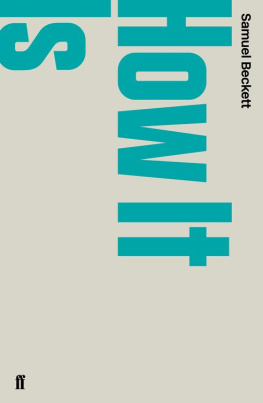
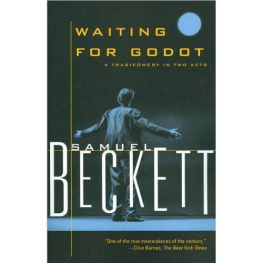
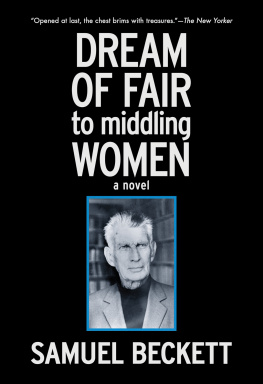
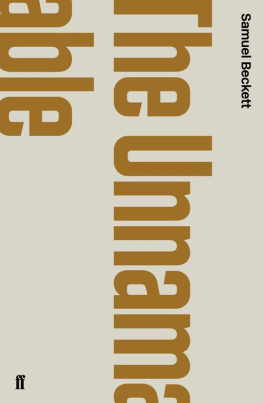
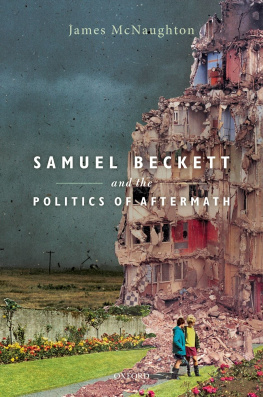
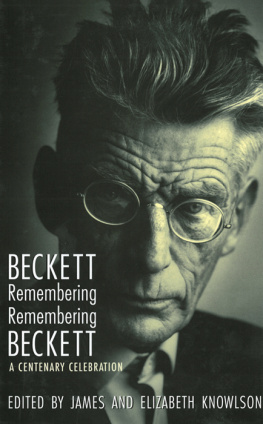
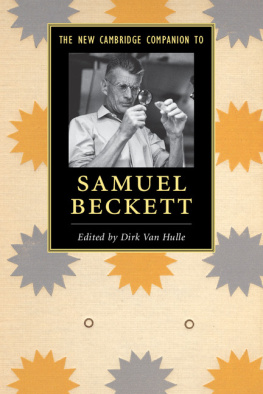
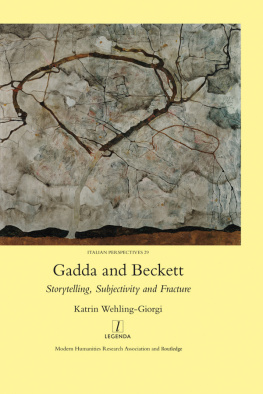

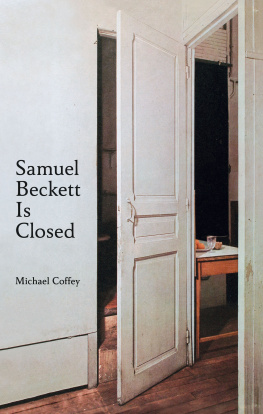
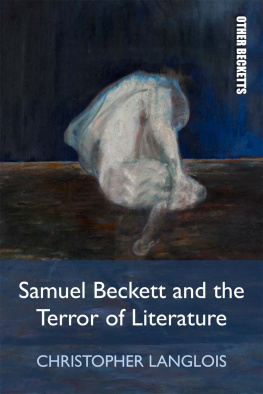
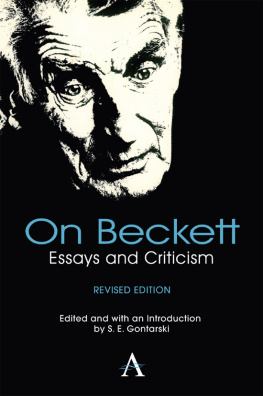
![Samuel Beckett [Samuel Beckett] - The Complete Dramatic Works](/uploads/posts/book/72751/thumbs/samuel-beckett-samuel-beckett-the-complete.jpg)